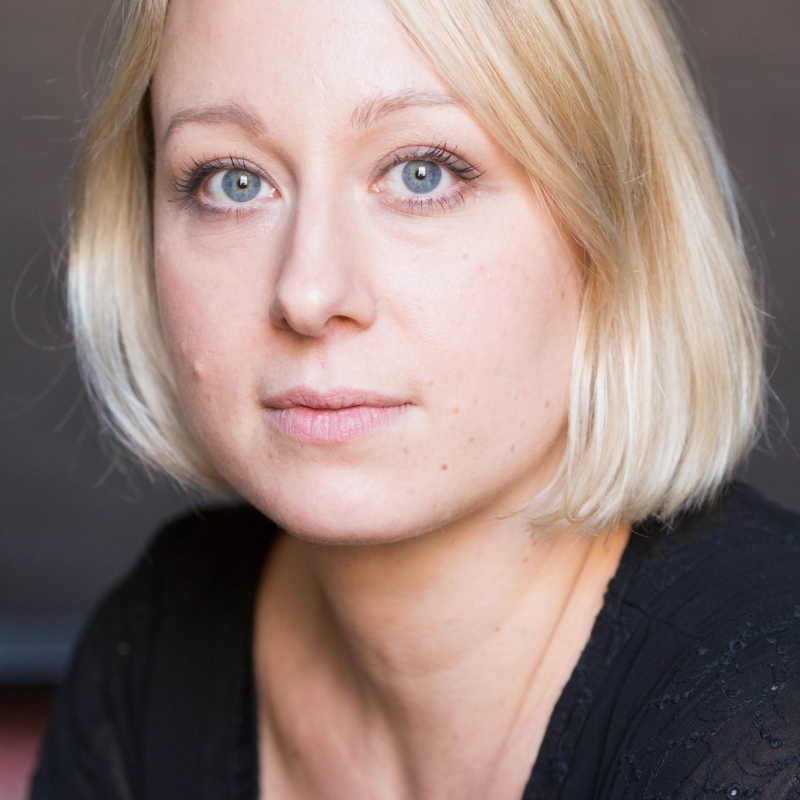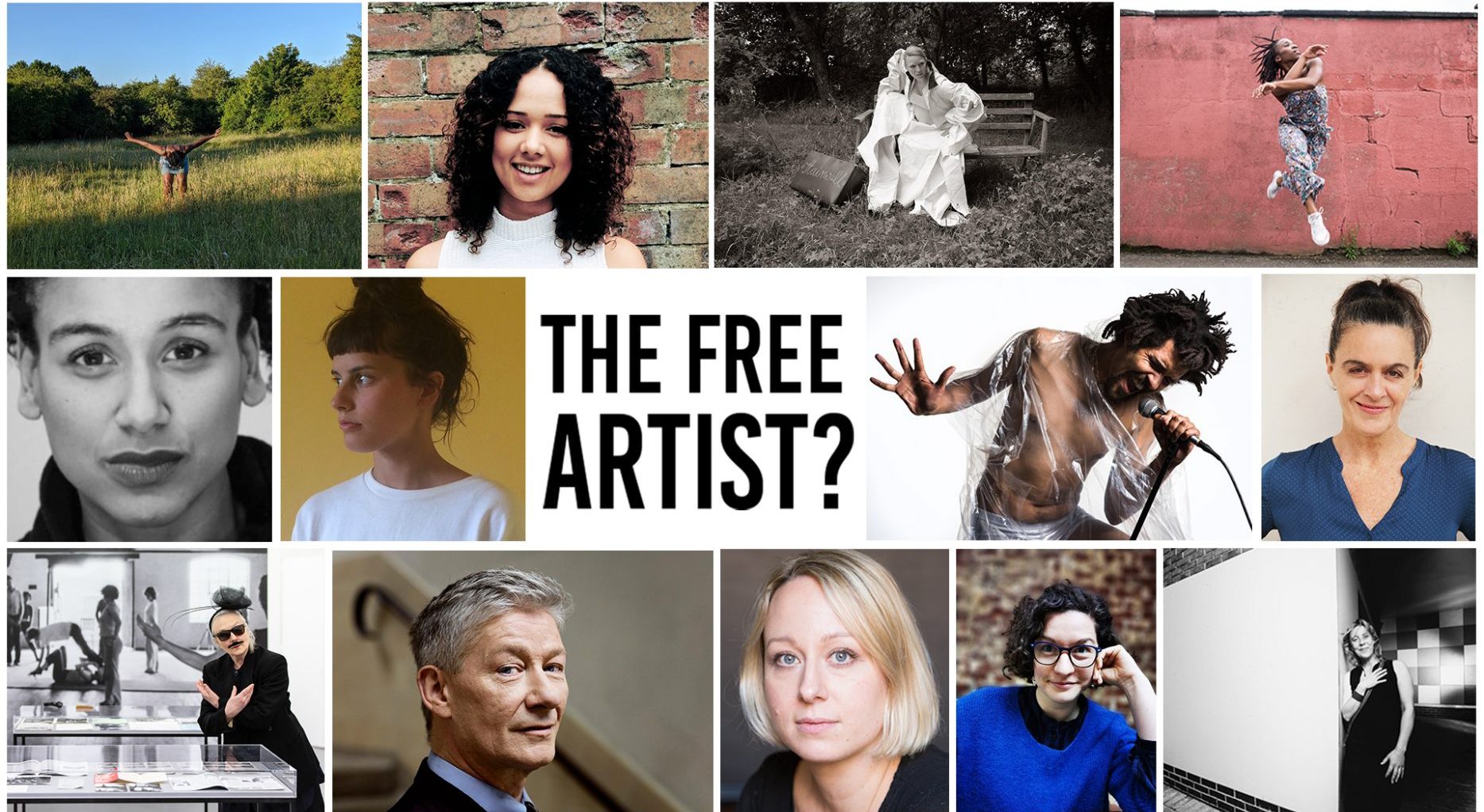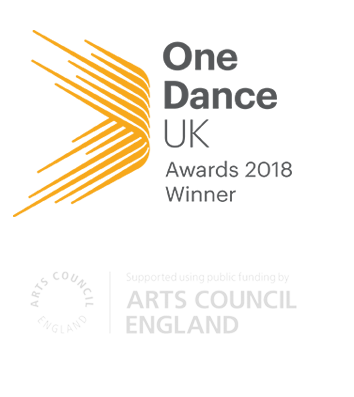Ursula Early
Notes on Creative Freelancing
The Struggle and the Juggle
Creative freelancing has been the work format and lifestyle I have always known, both as a working person and growing up as the daughter of two passionate, multi-talented freelance creative parents. From a young age I saw and understood the struggle and juggle. Unlike in other professions, where freelancing can often mean being paid more than your PAYE equivalent (employers rightly taking into account the lack of pension, perks, financial stability offered by freelance work), most theatre and dance practitioners are not paid accordingly. Often for every fee paid, a creative practitioner has done days, weeks or even months of work that is not recompensed or recognised.
Growing up watching my parents and now, as a freelancer myself, I have experienced the nailbiting wait to see if the post was bringing a devastating and measly small letter – a no – or the jump-in-the-air big letter from ACE (now online so slightly more detaching) – a yes. This was the green light on a project or a red light with months of worked snuffed out in a millisecond. But, I have seen and been part of many of my parents successes, the wonderful, wacky, educational, creatively inspirational shows and projects that they have created, made, produced and got funded over the years. And now I have my own extensive back catalogue of projects under my belt. So, Is it worth it? Is the creative freedom that freelance life can give you enough to combat the many financial, political and social restrictions you have to face?
‘Resting’
I have been a freelancer for most of my working life, in many guises, a steady stream of freelance and/or zero hours ‘side’ or ‘resting’ jobs. These have been often mundane and tedious: call centres = stressful – waitressing and bar work; sometimes downright bizarre = promo work. Then there was Intelligence and military role-play training…can’t say too much on that one as have signed NDAs but take my word for it, the most strange, surreal moments I’ve ever had and often quite thrilling, which, of course went against my anti-war, peaceful beliefs but it’s all pretend…right?
Acting
My main job, which defined me for years is as an actor and performer. I am still an actor, I have an agent and I perform in projects of my own and other peoples but it doesn’t define me anymore. Being an actor is the best job in the world when you are working, the exhilaration of being on stage, the direct and immediate recognition you get from the audience is like nothing else. There is this wonderful back-stage bubble on a show as well – you create an ensemble, a company. It is exhilarating, fun and exciting. Building great hard and fast friendships that are sometimes short-lived, often quite transient which is the nature of the short-term freelance contract. However, like many I was lucky to be in work about a third of the year in average (if that) and in between, doing a lot of crap zero-hour jobs mentioned above. You end up waiting for your agent to call, you are reliant on sorts of subjective decisions of other people – do you look right, sound right, act right. It feels powerless and not free.
The Hustle
You can make things happen to some extent if you are good at the hustle and network but for some reason, with my actor hat on, I wasn’t very good at it (I’m much better at it now, when I’m producing). I wasn’t as proactive as I could be. Early on, I think there was an arrogant laziness: I went to a great drama school and had a great agent – I’m gonna “make it”. I got a few jobs but I didn’t hit the ‘big-time’ like some of my contemporaries and it becomes harder psychologically. And I always felt a bit horrible and needy and pathetic doing necessary networking, things like emailing casting directors. It always felt too intangible.
Taking Control
I started to make a transition about 10 years ago, I wanted to be the freelancer in control, genuinely the boss of my business and create my own creative opportunities and contexts. I started a theatre company and slowly, sometimes painfully I learned how to develop, produce and get projects off the ground. This wasn’t alien, I’d had the best template for this – my parents – they have always made and produced projects so it feels in my blood but that doesn’t mean it’s easy.
A big thing I learnt starting my first company and producing a few projects is that I didn’t want to work on my own. I regretted not starting the company with someone. Having that springboard and support. I wanted to work as part of a team again. The good bit of making theatre is being in a room with a team of people bouncing ideas off each other and having fun creating something exciting. The reality of producing is a lot of sitting at your desk, doing managerial, administrative, fundraising type work. This is isolating and sometimes scary, especially if you’re the sole producer or director so I determined from henceforth to work with a least one other person on projects or at the helm of a company. Sharing the responsibility, joy, falls, pride and excitement of each project.
Money Makes the World Go Round
I’ve always got a tussle in me: I want to make and be in interesting, worthy, exciting work but often that doesn’t come with a proper pay-check. And, the other side is that (don’t tell) I’d love to make some money. Possibly because I’ve never had enough not to worry. Those feelings have grown since having kids, I want the best for them. I don’t really know what that means, I don’t mean skiing and flying 1st class, but just comfortable and secure, able to enjoy a few of the nicer things in life. This closet goal led me into trying out different contexts:
A few years ago I got my first PAYE job which was in commercial producing. A crazy fast-speed business train far removed from the creative world I know and love but hugely informative about the financial side of getting theatre on. It gave me knowledge which I think everyone involved in the arts should have. I’ve spoken to many actors and directors who can’t wait to tell you “Oh god, I have no idea about the money side of things” or “I couldn’t possibly be a producer, I don’t know how you do it”. “Well, it’s not rocket science and you could do it too” is what I normally say. In fact, I think all artists should have a basic understanding of how to get projects off the ground. Especially in these bleak financial times. We barely have traditional regional or rep systems anymore. Those hierarchical models of theatre hardly exist now. So, if you want to keep working, making and performing I think artists and practitioners need to learn elements of developing and producing and working out ways to secure funding. Through necessity, I believe, we are slowly moving to a landscape where the majority of performing or directing opportunities will only be there if you are involved in creating them.
So, I got better at doing budgets, writing emails, networking, talking to people, managing teams. It was satisfying to have regular dosh. Although it’s bitten me on the arse in the last few months as the government used these two employed years alongside one self-employed year to work out my self-employed grant so the fact that I was on 90% PAYE for those two years brought my three year profit average down and I got bugger all.
Ultimately, I came to the conclusion the job was not going to lead me to the goals I wanted and freelance life was calling me once again. I wanted to work creatively for and with my local community.
Community
I had another shift about four years ago: I decided to find out what was happening on a creative level in the area I lived (Waltham Forest) I knew lots of world leading performers, writer, directors and artists lived in the borough, but I had no direct links with local cultural happenings. This also coincided with me getting pregnant with Florence, I think there was a deep instinctiveness about wanting to put down roots, both from a personal level but also a work level. I’m now heavily immersed with the local creative scene: I run several local projects and companies and I know all the key bigwigs there ain’t much cultural stuff happening in Waltham Forest that I don’t know about!
On the home Front
Then the biggie, having my babies. The kind, intelligent, funny, precision loving Florence (3 years old) and the sweet, bonkers bruiser Henry (20 months). They are everything and more but, as all parents know, a complete game changer. Although there is something familiar about the juggle of babies which felt quite standard to me, as a freelancer.
I did work projects quite early on with both: a project at about 5/6 months after having Flo. It was successful but it was too much and I swore that next time round I’d give myself more time to ‘Netflix and Chill’ with the baby and just enjoy the new little being. Then our ‘happy surprise’ – Henry – came along and somehow, I ended up doing a project at 3 months after having him. Things were in the diary what could I do? There is deep rooted freelancer desperation which comes into play, sometimes it can be useful, it spurs you on but other times it is exhausting and possibly slightly damaging. I didn’t feel I could just stop for a year, like maternity leave, I had to keep the wheels turning, you can’t say no as you may never get another opportunity or so the feeling goes.
Being a mum and more recently Covid has highlighted the strange nature of my freelance work: I take the seed of an idea and grow it into something real. It might not grow for all sorts of reasons: not fully formulated, no funding, the logistics don’t work etc… But, then sometimes it does, which is wonderful and makes you pause and go ‘wow how did that happen?’. It happened through lots of slog. But, a bit like childbirth, the rose tinted glasses appear and you forget the pain, the bad bits, the setbacks and you want to do it all over again, the audience has clapped, the inner freelancer has received their recognition and we are good to go again!
Either way, to develop an idea into a fully formed ‘tree’ involves: thinking about it, planning, finding partner organisations and venues, confirming your creative team and collaborators and much more. This can take weeks or even months before you can even apply for funding. Then, even if you secure funding and money was included in the budget to cover some planning and development time, it is never going to cover all your time and work.
Interestingly, my partner made the decision to stop being a freelancer a couple of years ago, we met doing the military and intelligence role-play. It was my ‘in-between’ but had become his main job and he wasn’t happy. After some soul-searching, hard-graft and tough assessments surprisingly (certainly for me at first), he is training to be a train driver. The training is long and hard and Covid has delayed him ‘going mainline’ (train driver lingo for the pros). He loves it and when qualified the pay-check is far and above what either us could earn as creative freelancers. Sadly, the reality is that, if we had both been actors and Covid hit we would’ve been completely up s**t creak without a paddle.
Another upside (if one can have an upside in a global pandemic) is that he has been furloughed for the last few months which has meant I have been able to work. If he hadn’t been, it would have been me on double-baby duty most of the time and my work would have more than likely stalled.
It’s not been plane-sailing the whole time, I’ve still had to push to carve out work time, which I know has been a discussion in many households. A lot of my work only happens if I create it and bring it to fruition. If I do nothing, it doesn’t happen. This is difficult to make my partner, other colleagues and even myself truly grasp. He wants to be supportive, but It’s been an ongoing negotiation about getting proper work time. It’s become particularly apparent during this period, we’ve spent a lot of time quite often, unnecessarily, co-parenting. There has been guilt from me that it was unfair to make him suddenly do so much more solo parenting. But before, I did the bigger share of childcare to accommodate his work. So, where does that guilt come from, he wasn’t working, and I have to work? I guess a good dollop of internalised old-fashioned gender dynamics.
But, by hook or by crook we now have got a good balance going on. We’ll see what happens when he heads back to work which will be any day now. We will have to rebalance it all again.
Political/Personal
Like lots of other creative freelancers, I have had to work numerous zero-hour crap low paid jobs to support my real work, these contracts are innately exploitative. Exploitation is ingrained in the artistic world: I’m often not recompensed for the work I do. Most creative practitioners have experienced working for free, it is even expected, with councils and funding bodies often anticipating that projects will only be viable if they are underpinned with a base of volunteers donating some or all of their time. I know many freelancers, including myself, who have experienced negative feedback about applying for appropriate fees. As though it is greedy as opposed to just paying oneself a very average fee for work completed. It feeds into a notion that this work, my work, is not ‘real work’. And we must battle that notion rather than acquiesce.
Ultimately, due to the lack of proper financial support from the UK government, the creative professions aren’t respected or often seen as vital and important. Unlike other European countries like France or Germany where art and creative practitioners are financially supported and given a form of a ‘wage’ when they are out of work or developing projects.
Identity
Identity is a huge issue for me. I have worn a lot of different creative hats – producing, directing, acting, facilitating – and I’ve not wanted to be defined by any of them individually. This is often not respected, people want you to be one thing or the other, it’s easier to label and box you. I have had people (and yes, mostly men) using it against me for example: using my experience as an actor to undermine my producing or directing prowess.
I can’t pretend that I don’t occasionally have some confusion about my own identity as an artist and freelancer. I currently co-lead on several companies and they each require me to wear a different combination of hats. I am passionate about them all but sometimes it feels like I might be spreading myself too thin. Should I be streamlining, have one achievable goal, throw all my eggs in one basket?
What Next?
I’m still trying to work out what my endgame is, where I want to be in a few years. It comes back to freedom. Being able to create projects seems free but it doesn’t give clear parameters, the field is almost too wide, there is no obvious career trajectory – you don’t work hard, get promoted and get to the position you want. So, I’m still working it out and want to do all sorts of things: I want to keep building the work that I’m doing now but I also want to do a one-woman comedy show, write a book and maybe even do a Politics MA – Is that ok? Is that Valid?
So, it’s still all in process. I got an ACE creative practitioners emergency relief grant and in that I said I was going to write my 3-year plan. I haven’t done it yet; the procrastination of the juggle is allowing me to keep nudging it down the list. But I think I’ll need to if I’m going to achieve my grand freelance plans, which I am absolutely determined to do.

Ursula Early is a theatre producer, theatre-maker, facilitator and actress. She is a founder and Director of Waltham Forest based Theatre Companies Blackhorse Arts and East London Shakespeare Festival. She is also Producer and Programmer for Walthamstow’s performance venue The CentrE17. Previously, she founded Big Bear Theatre Company and was a Production Coordinator for Commercial West-End and international touring Production Company: Glynis Henderson Productions (Producers of STOMP and others). Ursula has an extensive TV and theatre acting CV and trained at Guildhall School of Music and Drama. Ursula is an experienced workshop leader and facilitator and has designed and delivered an extensive range of acting and drama workshops for theatre companies and Drama Schools. She taught as an adult acting teacher for City Academy, She has Level 3 OCNLR Accredited Diploma in Leading Dance for Older People (course provided by Green Candle Dance Company). She is also currently on the professional development faculty of Dance Research Studio and teaches on their Professional Development Programme.






